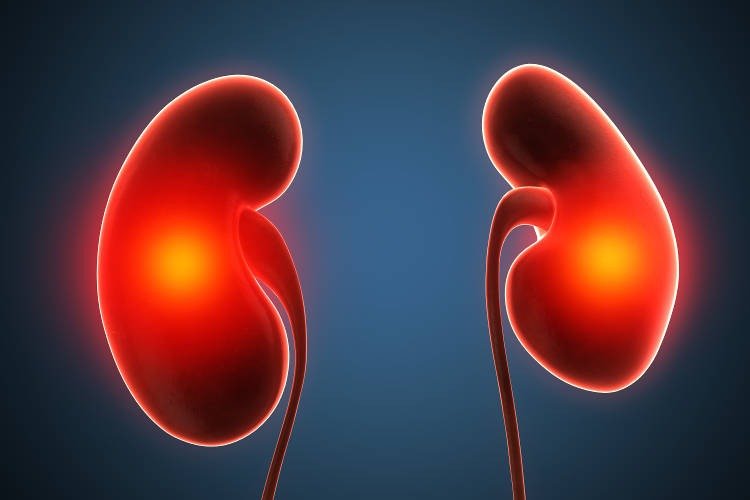Glomerulonephritis, often referred to as GN, is a group of diseases that cause inflammation of the glomeruli, which are the tiny filtering units within the kidneys. These small structures play a crucial role in removing waste and excess fluids from the blood to form urine. When they become inflamed, their ability to function properly is compromised, leading to a range of kidney-related issues.
Types of Glomerulonephritis
Glomerulonephritis can be classified into two main categories:
- Acute Glomerulonephritis (AGN):
- Rapid Onset: AGN occurs suddenly, often as a response to an infection, particularly streptococcal infections like strep throat.
- Temporary Condition: With appropriate treatment, AGN can often be resolved, and kidney function may return to normal.
- Chronic Glomerulonephritis (CGN):
- Slow Progression: CGN develops gradually over months or years, and it can lead to long-term damage.
- Persistent Condition: CGN can cause irreversible damage, potentially leading to chronic kidney disease (CKD) or even kidney failure.
Causes of Glomerulonephritis
The causes of glomerulonephritis are varied and can include:
- Infections: Post-streptococcal glomerulonephritis occurs after infections such as strep throat or skin infections. Other infections like bacterial endocarditis, hepatitis B, and hepatitis C can also lead to GN.
- Autoimmune Disorders: Conditions like lupus and Goodpasture syndrome, where the immune system attacks the body’s own tissues, can cause glomerulonephritis.
- Vasculitis: Inflammation of the blood vessels, as seen in diseases like polyarteritis nodosa, can lead to GN.
- IgA Nephropathy: A condition where an abnormal buildup of immunoglobulin A (IgA) occurs in the glomeruli, causing inflammation.
- Genetic Factors: Some forms of GN, like Alport syndrome, are inherited and can cause kidney damage over time.
Symptoms of Glomerulonephritis
The symptoms of glomerulonephritis can vary depending on the type and severity of the condition. Common symptoms include:
- Hematuria: Blood in the urine, which may cause it to appear pink, red, or cola-colored.
- Proteinuria: Excess protein in the urine, often causing it to be foamy.
- Hypertension: High blood pressure, which can develop as the kidneys struggle to regulate fluids and salts.
- Edema: Swelling in parts of the body, particularly in the face, hands, feet, and abdomen, due to fluid retention.
- Fatigue: General feeling of tiredness or weakness due to impaired kidney function.
- Oliguria: Decreased urine output, which may indicate worsening kidney function.
Diagnosis of Glomerulonephritis
Diagnosing glomerulonephritis involves several steps:
- Urinalysis: A urine test can reveal signs of kidney damage, such as blood or protein in the urine.
- Blood Tests: Blood tests can assess kidney function by measuring levels of waste products like creatinine and blood urea nitrogen (BUN).
- Imaging Studies: Ultrasound or CT scans may be used to examine the kidneys for structural abnormalities.
- Kidney Biopsy: A small sample of kidney tissue may be taken for microscopic examination to confirm the diagnosis and identify the specific type of GN.
Treatment Options for Glomerulonephritis
Treatment for glomerulonephritis depends on the underlying cause, type, and severity of the disease. Options include:
- Medications:
- Corticosteroids: To reduce inflammation in the kidneys.
- Immunosuppressants: To manage autoimmune-related GN.
- Antibiotics: For cases triggered by bacterial infections.
- Blood Pressure Medications: Such as ACE inhibitors or ARBs to control hypertension and reduce proteinuria.
- Dietary Changes:
- Low-sodium Diet: To manage blood pressure and reduce swelling.
- Protein Restriction: To decrease the burden on the kidneys.
- Plasmapheresis: A procedure that filters harmful antibodies from the blood, used in severe cases like Goodpasture syndrome.
- Dialysis: In advanced stages, dialysis may be necessary to perform the kidney’s filtering functions.
- Kidney Transplant: For patients with end-stage renal disease (ESRD), a kidney transplant may be the best option.
Prognosis and Long-term Management
The prognosis for glomerulonephritis varies. Acute cases may resolve with treatment, while chronic forms can lead to progressive kidney damage. Regular monitoring of kidney function, blood pressure, and urine tests are essential for managing the disease and preventing complications.
Conclusion
Glomerulonephritis is a complex condition that requires timely diagnosis and appropriate treatment to protect kidney function. Whether acute or chronic, understanding the causes, symptoms, and treatment options is key to managing the disease effectively. If you experience any signs of kidney problems, it’s crucial to seek medical attention to prevent further damage and maintain your health.

